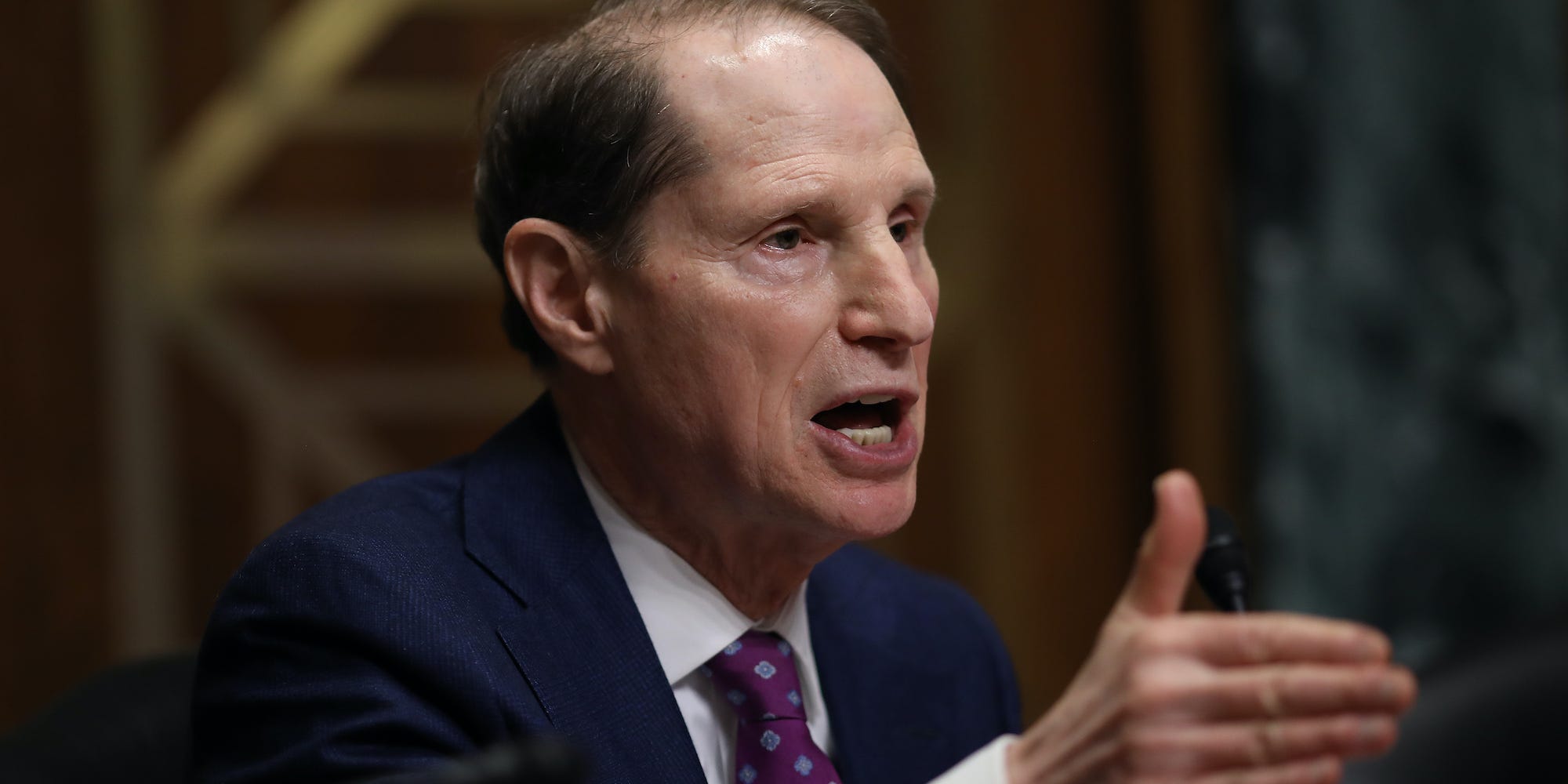
Photo by Win McNamee/Getty Images
- One Democratic plan would overhaul how companies pay taxes on overseas profits.
- It could generate $800 billion, or enough to finance two $1,400 stimulus checks.
- Democrats may clash on taxes as they assemble a party-line spending package.
- See more stories on Insider's business page.
Fresh off a House vote to advance a $3.5 trillion budget blueprint, Democrats must now draft a massive social spending package. A major point of contention? Taxes.
Before Democrats pass the package with likely unanimous GOP opposition, they're facing some internal disagreements over how fund it – likely a collection of tax hikes on the wealthiest Americans, investors, and large companies. President Biden proposed a 28% corporate rate, higher than the current 21% level. But moderate Democrats like Joe Manchin are already uneasy and say they'd prefer to see a 25% rate instead.
In the process, they would partially roll back President Donald Trump's 2017 tax law.
A part of that 2017 law includes how the government taxes US-based multinational firms depending on the location of their headquarters and where they earn profits. Democrats want to overhaul this element to raise enough money to pay for measures like President Joe Biden's child allowance, universal pre-K, and tuition-free community college among others.
Kyle Pomerleau, a tax expert at the conservative-leaning American Enterprise Institute, told NBC News the tax changes could raise $800 billion. That's enough money for the federal government to finance two $1,400 stimulus checks similar to the ones most Americans received in the $1.9 trillion Biden stimulus law during the pandemic.
Sens. Ron Wyden of Oregon, Mark Warner of Virginia, and Sherrod Brown of Ohio are taking the lead. On Wednesday, this trio released a draft framework aimed at ending incentives for companies to move operations out of the US and encourage more to expand domestically. Many firms have used them to cut their tax bill well below the official 21% rate.
"To right the ship, we're ending incentives to ship jobs overseas and closing loopholes that allow companies to stash their profits in tax havens," Wyden said in a statement.
The Trump administration's tax law enacted a system that included exemptions on where companies must pay taxes on overseas profits. That was a change from the prior arrangement where firms could stash it abroad and completely avoid paying the full corporate tax.
Democrats are in favor of the current set-up, but they want to levy higher tax rates to a wider range of profits, tailor tax obligations to individual countries and not impose them uniformly. Conservatives argue this will stymie the ability of companies to compete abroad and incentivize them to keep their headquarters overseas.

